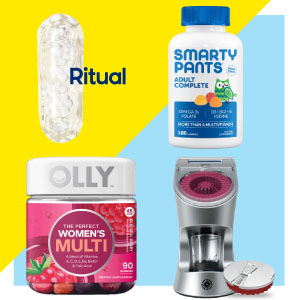There is growing interest in transparency on product labels from foods and beverages, to consumer goods, to personal care products, and now vitamin supplements. The Clean Label Project is an independent product testing organization that tests pet and baby foods and beverages for the presence of harmful ingredients. Clean labels are found on products that contain no artificial flavors, colors, sweeteners, preservatives, GMOs, antibiotics, or hard-to-pronounce, unrecognizable ingredients. Consumers are scrutinizing labels and ingredient lists, looking for short, easy-to-read, easy-to recognize ingredient lists. They are also attracted to products that claim to be “free of” artificial dyes, preservatives, GMOs, and other synthetic substances.
The need for label transparency or clean labels is being driven by five major trends:
- Millennials are interested in clean labels.
- Consumers with food allergies are demanding clean labels.
- Food recalls are causing consumers to push for increased food safety and transparency in the supply chain.
- Consumers are increasingly seeking healthy food options with clean labels that are non-GMO, sustainable, organic, and local.
- Popular retailers, such as Whole Foods, Sprouts, and Trader Joe’s, were built on the foundation of selling healthy and natural products, and consumers in turn are demanding similar options from traditional retailers.
As a result, this same initiative is impacting the nutritional supplements market with several lines aimed at providing consumers with clean labels. The Ritual line of vitamins was started by a millennial mom who didn’t like the list of harmful and hard-to-pronounce ingredients in her prenatal vitamins. The Ritual brand is sold via subscription for about $30.00 per month and contains ingredients that are easily recognized. Olly and Smarty Pants multivitamins and supplements were created by one of the co-founders of Method cleaning products, Eric Ryan, and are promoted as being “free of” harmful ingredients. Olly and Smarty Pants are sold in natural and specialty stores like Whole Foods, but also at mainstream retailers like Walmart, Target, and CVS.
Liquid and powder vitamins are becoming more popular with the rise of clean labels because they do not require long lists of inactive ingredients like tablets and caplets do. Some inactive ingredients that are used in the tableting process include magnesium stearate and titanium dioxide, which are considered to be harmful or not beneficial to the human body. Tespo’s liquid and powder vitamins contain pure ingredients from premium raw materials with no fillers and are sold with the tagline “the future of vitamins is pill free”. Tespo’s vitamins are dispensed from a single-serve machine like a Keurig coffee brewer and are sold via Amazon and the company’s website.
To learn more about these clean label brands and the impact these trends are expected to have on the OTC nutritional supplements market, you may be interested in Kline’s Nonprescription Drugs USA 2017 and Natural OTC Products reports, both of which will be published later this year. Digestive Health, Immunity, and Probiotics was published last year and provides a comprehensive analysis of the market for prebiotics and probiotics, digestive enzymes, and probiotic beverages in shelf stable and refrigerated forms sold via all outlets.

